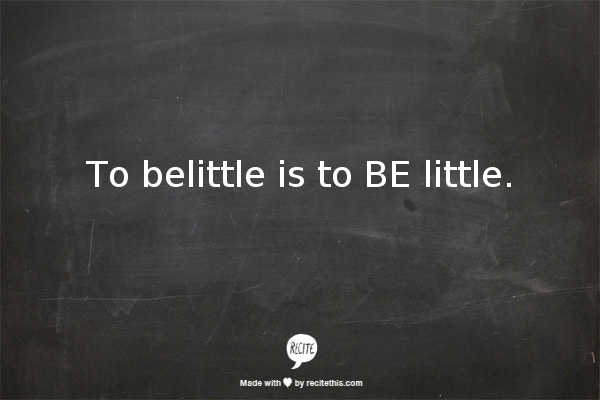
Recently, I was reminded of an encounter I had in my office with a young person, a couple of years ago. (It doesn’t matter if this person was male or female because we all have interacted with mean, hateful people.) There was an inner sadness in this young person’s eyes, even though there was a smile on their face and laughter coming from their mouth. I don’t remember saying anything to promote the intimate sharing that came forth, except that sometimes, sharing one’s burdens with a stranger is easier than confronting the one who burdens our heart or even buries our soul with hateful, hurtful words.
I began to get angry inside as I listened and watched this capable, intelligent person demean themselves. At the same time, a sadness came over me as I could see how they tried to justify or maybe convince themselves the hurtful accusations were somehow deserving or true.
I had heard enough.
I took a clean sheet of copy paper and wadded it up. I stopped them and asked, “Did it ever occur to you that it is not you with the problem?” From this strong, intelligent person came a small, frail, “No.”
“I am going to teach you something I taught my children.” I held the wadded paper out for them. “Here, take this trash.” They looked at me like I had lost my mind but took the paper from my hand.
I gently took the paper back. “Don’t ever take someone else’s trash.” I said, “Do you understand what I am saying?”
“Yes.” They said quietly. “Okay, then. Here, take my trash.” I said authoritatively. Once again, they reached out and took my trash. “No, don’t ever take someone else’s trash.” I let them hold it for a moment then said, “That isn’t your trash to deal with, give it back to me.” They handed the trash back to me with a slight smile.
“You are not responsible for taking on another person’s trash just because they don’t want to deal with it. Everybody has trash. Some people don’t want to face their trash or are too lazy to deal with it themselves, so they try to force it on others. They make their trash the other person’s problem because we accept it. Don’t take someone else’s trash.” I continued, “If you want to walk with someone as they deal with their trash and support them, it is your choice. You can be supportive and not take their trash. It is not yours to deal with. You did not create it.”
“Here, take this.” I extended my arm out to hand over my trash once again.
“No.” They said with a smile. “You keep your trash.”
We concluded our business, and as they were leaving, they asked, “Could I have that trash as a reminder to not take someone else’s trash?”
Of course!
%d
